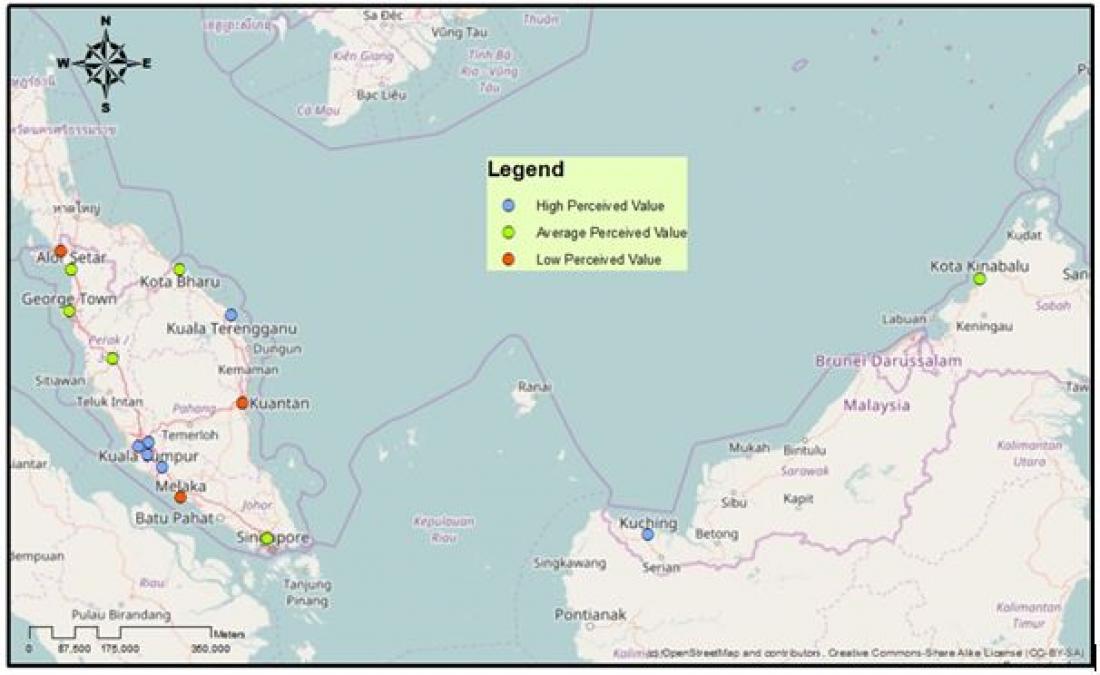Perceived Antarctica value in Malaysia using hierarchical method.
The Malaysia Antarctica Research Programme (MARP) was initiated in 1997 to implement research activities and scientific expeditions in the Antarctic region. Antarctic research has been focusing on hard sciences (life sciences, geological sciences and physical sciences) and policy and governance. However, the role of the region (Antarctica) in regulating the global climatic condition thereby leading to public appreciation towards Antarctica has garnered substantial attention in recently years especially among the members of Scientific Committee on Antarctic Research Humanities and Social Sciences Expert Group (SCAR HASSEG).
A research team from University of Malaya and the National Antarctic Research Centre (NARC) conducts a 3-year study on the Perception and Opinion of Antarctic Values in Malaysia. The study aims to investigate the core values of Antarctica among Malaysian working adults and was funded by Ministry of Science, Technology and Innovations (MOSTI) under the flagship program entitled ‘Connectivity between Equatorial and polar regions: From Global Warming to Environmental and Microbial Community Changes’.
The research team aims to reveal an overview of environmental perceptions among the Malaysians, highlighting spatial patterns of the appreciations. This will contribute to the overall strategies in Malaysia’s current policy and future planning (especially in education and public awareness) on the Antarctica.
The group conducted a survey for public opinions between mid of June to end of December 2016, with a total of 1,610 responded on site and through Google survey. The research team approached prominent members from SCAR HASSEG for pre-test, while pilot survey was carried out among public. The team identified level of basic knowledge and issues faced in the region. Findings were stratified based on the collected data on demographic profile and spatial distribution to explore the relations between location and survey response. The study is still on-going and is expected to complete by mid of June 2018.
For more information, kindly contact:
1. Dr. Goh Hong Ching (principal investigator)
Faculty of Built Environment, University of Malaya,
50603 Kuala Lumpur, Malaysia.
Email: [email protected]
2. Nur Fathin Amira Wahab (research assistant)
Institute of Postgraduate Studies, University of Malaya,
50603 Kuala Lumpur, Malaysia.
Email: [email protected]
3. Dr. Siti Aishah Alias (co-researcher)
Institute of Ocean and Earth Sciences (IOES), Universiti Malaya,
50603 Kuala Lumpur, Malaysia.
Email: [email protected]



